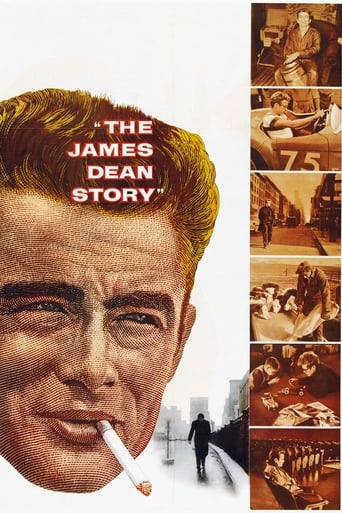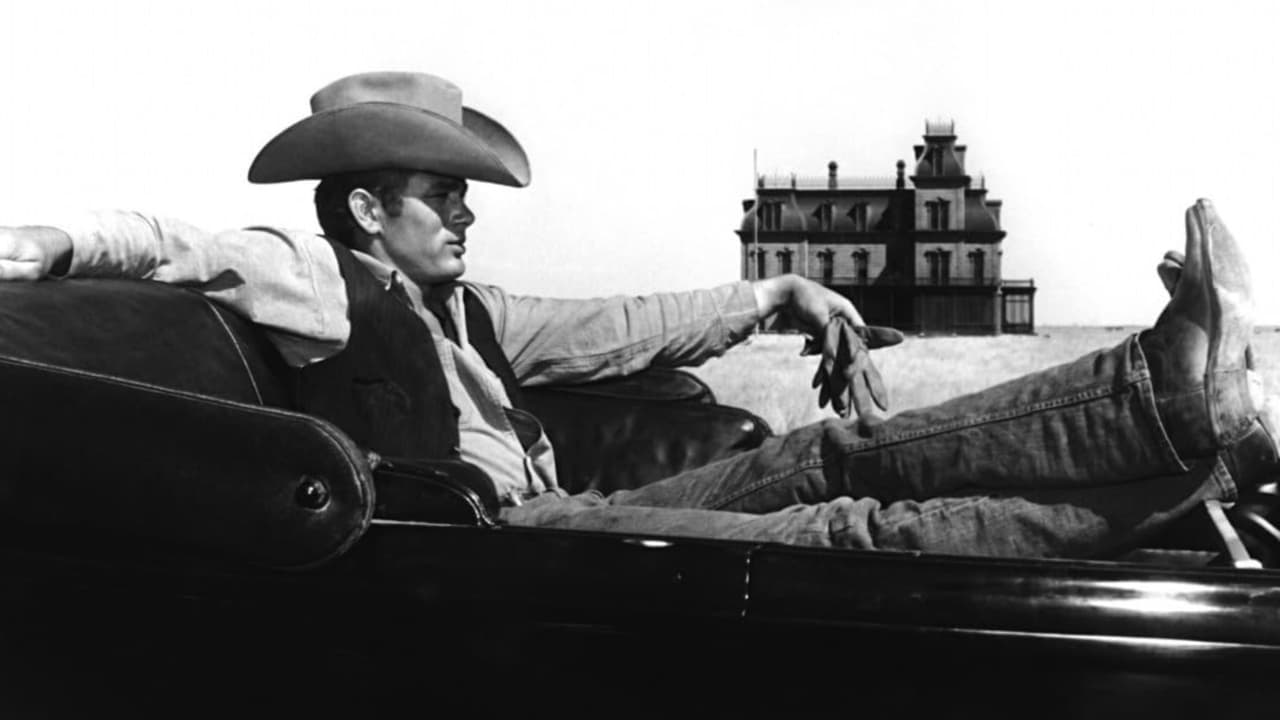l_rawjalaurence
Released two years after Dean's death at the untimely age of twenty-four, THE JAMES DEAN STORY is a valuable document as it includes interviews with many of the family and close friends who knew him - his grandmother, his aunt and uncle, his acquaintances in New York and Hollywood, and other workers who befriended him. Sometimes their testimonies seem somewhat stilted on screen, as if co-directors Robert Altman and George W. George had rehearsed their dialogue beforehand and were prompting them into making reactions. On the other hand their love for Dean seems palpable, despite his reputation for being difficult.Narrated by theater actor and sometime director Martin Gabel, the film paints a portrait of a troubled personality whose father and mother died young and who was brought up in rural Indiana by his aunt and uncle. Although extremely helpful with the chores, young Dean always appeared lonely, as if in search for something he could never access. Apparently he used to spend a lot of time under a favorite tree, that not only served as a place of sanctuary but gave him the time and space to reflect.He cut his theatrical teeth at school, and then decided to make the big move from Indiana to New York. After a short time in the wilderness, he landed a role in the short-lived production SEE THE JAGUAR (1952), but shot to stardom two years later in THE IMMORALIST, adapted by Ruth and Augustus Goetz from the novel by André Gide. His raw energy, stimulated by loneliness, produced an electrifying performance that outshone those of his costars Geraldine Page and Louis Jourdain.Yet this was not enough for him - after a dispute with the producer, Dean walked out on THE IMMORALIST to seek his fortune in Hollywood. After spending many nights sequestered in local hostelries, hobnobbing with stars and hangers-on, he landed a leading role in EAST OF EDEN (1955), directed by Elia Kazan. The rest, as they say, is history.Gabel's narration sounds a little portentous at times, but nonetheless we are given a portrait of a complex personality at once alienated from yet keenly desirous of praise from the world. His career really took off with the help of father-figure directors such as Kazan and Nicholas Ray, who understood his potential and made every effort to develop it. Dean was a mercurial actor - even more so than his illustrious contemporary Marlon Brando - who never gave the same performance twice, either on stage or screen. If a director could develop that raw energy, then they could be assured of a memorable performance from him.True to the spirit of the late Fifties, we are not told about the actor's alleged bisexuality. Our attention focuses rather on the way in which the actor did not perform on screen at all, but simply drew upon his perpetual feelings of alienation and loneliness to produce a series of electrifying screen characterizations. Truly he was an icon of the times, whose early demise only served to enhance his legendary status.
Desertman84
The James Dean Story is the first documentary made about James Dean two years after his death in 1957.Martin Gabel provided the narration that chronicled Dean's short life and career using still photographs.Also included were interviews from relatives,friends and the owner of his favorite restaurant located in Los Angeles.Finally,the viewer is also treated outtakes from his movie East Of Eden and the videos of the opening night of his other movie,Giant.Considering that this documentary is done almost 60 years ago,I still think that it was good during its time.It probably helped in forming the James Dean myths of an actor who died early considering that the best is yet to come from this "one of a kind" and enigmatic movie star.
Cosmoeticadotcom
There is something very appealing about a documentary that dares to psychologize its subject (if not to the point of the Self digression), because so many documentaries, these days, try to feign objectivity to the breaking point, even when, ala Michael Moore, their position- pro or con, is manifest from the get-go. Similarly, the personal accounts of Dean seem far more genuine than later documentaries in which interviewees seem to mug for the camera, and pull apocryphal tales out of their asses, just to get their own lousy fifteen minutes in the sun. The interviewees here are speaking contemporaneously, before Dean's legend really took off, and there is none of the deliberate or unintended fuzzing of memories towards the better angels of Dean's nature.The lone exception to this particular good quality of the film, is a scene where Altman gets the family and friends of Dean to re-enact their reactions to first hearing of Dean's death in a car crash of his Porsche on September 30th, 1955. What makes this section so poor a piece of filmmaking is the fact that earlier, we get to listen to a surreptitiously recorded 'real' conversation between Dean and his relatives, and the contrast between that and the 'scripted' parts is so great. Also, the film makes good use of the slow panning technique over still photographs that would later be used so successfully by documentarian Ken Burns. However, a caveat should be noted, and that is that the reason the technique works so well in the film is that the source photos are so intriguing. Yes, Dean comes off as a terminal narcissist, but he really did know how to strike the pose, and surround himself with photographer pals to immortalize himself.That said, the film, even at its mere 79 minutes of length, tends to wear a bit thin after the hour mark, because the reality is that Dean, despite this film's best intentions and claims, was not a particularly good actor. He was a relentless and born ham, and one need only watch Marlon Brando and Montgomery Clift, vis-à-vis Dean, to see the gulf between good and mediocre Method actors. Yet, while scenes from his films are few, there are some good passages with some of Dean's friends from New York and Los Angeles restaurants, some outtakes from films, newsreels of the opening of Giant, and a Public Service Announcement for safe driving, which more than make up for the film's deficiencies. Thus, The James Dean Story is a film and DVD worth watching, even if there are no extras, for its dated style becomes that rare quality that enhances even as it detracts. When was the last time you engaged a piece of art you could say even that of?
housebluehill
I watched the movie because Robert Altman directed it, but I'd assumed it was going to be a straight forward documentary of Dean's life. Then about half way through it something didn't feel right. The people being interviewed spoke like they were on automatic pilot and the childhood photographs chosen for the movie had the quality of a spoof. I watched it a second time and realized it was Altman's documentary of the American Celebrity Cult, not James Dean. Our devotion to movie actors was reaching a new zenith in the 1950's and the life and death of Dean was a timely example of it. It's a movie about us in the same way Nashville is, or A Wedding, or Short Cuts.



 AD
AD


